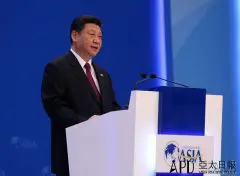By APD writer Muhammad Sohail
ISLAMABAD, July 10 (APD) -- The State Bank of Pakistan has said that the China-funded China-Pakistan Economic Corridor (CPEC) will provide new opportunities for the country’s local insurance industry especially the non-life sector.
In its annual Financial Stability Review, the SBP said “Pakistan is expected to witness continued growth in almost all sectors of the insurance industry with significant growth expected in the Takaful segment (Islamic Insurance).”
Meanwhile, the report noted that the operations and investment returns of the insurance industry are subject to market instability and macro-economic factors.
China is investing over 46 billion US dollars under the CPEC in Pakistan mainly in four sectors, including infrastrucre, energy, Gwadar port and industrial zones. Pakistan, with this huge investment and improved infrastrucre, expects huge foreign direct investment in different sectors, which can not only create hundreds of thousands new jobs but will also give a push to insurance industry.
Investments constitute about 76 per cent of total insurance industry assets in Pakistan as of June 30, 2016.
The report said if there is a “low for longer” rate environment, insurers’ investment income will suffer and they may invest in higher risk securities in search of greater profitability. In addition, while the low yields affect both sides of the balance sheet, they generally imply lower capital ratios for long-term business such as life insurance.
One of the biggest risks that the insurance industry in Pakistan faces is concentration risk; one of the Public Life Insurer comprises more than 60 per cent of the insurance industry’s Rs955 million ($9.09 million US dollars) asset base.
The financial information on its size or performance is not available for the other big public player in the life insurance sector. Even the non-life insurance sector has a prominent public player. All these entities are significant state-owned market players which need to be brought under market discipline to improve their efficiencies, the report said
(ASIA PACIFIC DAILY)
 简体中文
简体中文

